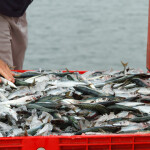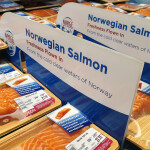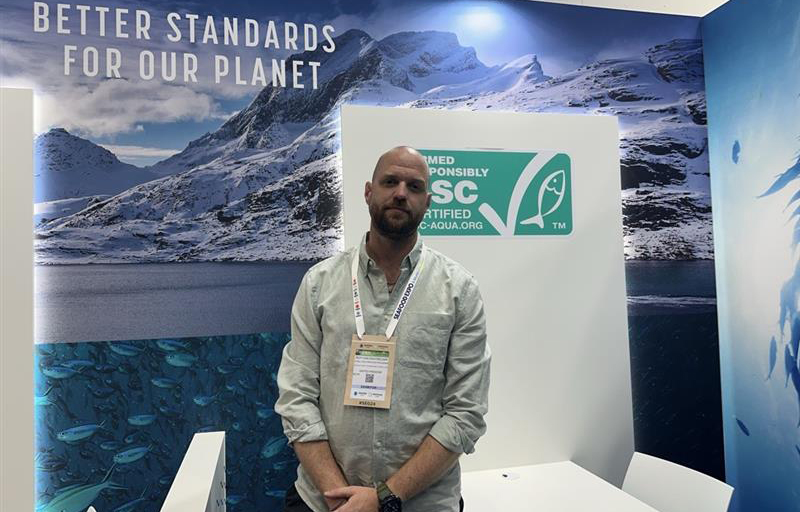The Aquaculture Stewardship Council (ASC) has seen progress in its Aquaculture Improver Program (AIP), a project the council launched to help small-scale fish farmers meet the standards of certification criteria.
The program, originally announced in October 2018 but officially launched at the Global Shrimp Forum in September 2023, mainly focuses on small-scale shrimp farmers in Southeast Asia and Latin America and models itself similarly to how effective fishery improvement projects (FIPs) operate.
“We want to transform global aquaculture to ensure the industry is sustainable for future generations,” ASC AIP Global Lead Roy van Daatselaar told SeafoodSource at the 2024 Seafood Expo Global in Barcelona, Spain. “Certification is a key tool, but we recognize that many producers, especially small-scale farmers, find it challenging to meet high standards.”
The AIP, therefore, aims to bridge the gap and offer aquaculturists the resources necessary to meet certification standards, van Daatselaar said. To achieve this, the program provides technical support, training, and an enabling environment that includes financial and supply chain support.
“Over time, the program will open up to other species. You can think about tilapia among some of the other species that will come in,” van Daatselaar said. “That’s what we’ll do in the coming years. The ASC will also continue to work on the aligned farm standard. Once that is there, it will make it much easier to develop training materials, templates, etc.”
Farmers going through the program as intended complete it in four phases over three years, with independent verification taking place at each phase to ensure compliance and progress. Producers begin with a gap analysis to compare their practices with ASC standards, followed by a work plan to address identified gaps. Key areas where gaps may arise include legal compliance, basic social requirements, and additional advanced practices in health and water management.
The program also opens opportunities for banks and investors. With a credible, transparent framework, financial institutions can feel confident investing in sustainable aquaculture practices, van Daatselaar said, knowing producers are on a path to certification and market access.
“More producers are being incentivized to become certified, but often, bigger companies can and smaller ones can’t. For markets and importers, it is very difficult in long and complex supply chains to understand, ‘What is my role? How do I incentivize? Do I need to invest in those farms? What role do I play?’ This [program] provides a very structured framework that allows them to understand how producers are operating and allows them to play a role,” van Daatselaar said.
Indonesia-based PT. Koyo Segoro Endah’s shrimp farm was the first to achieve ASC certification through the program, and several other farms are working their way through the program.
“Our ASC certification means that we now have a place in the global marketplace and are meeting the demand for responsibly farmed shrimp – a milestone we couldn’t have reached without ASC’s Improver Program,” PT. Koyo Segoro Endah Manager Rudyanto said. “The support we received from our partners throughout this process was invaluable. It gave us the knowledge and confidence we needed to move forward to ASC certification.”
The ASC also envisions partnerships with NGOs, such as the World Wildlife Fund network and Conservation International, to further strengthen the program's impact and enhance local cooperation.
To the latter goal’s end, the ASC announced a partnership with the Ghana Chamber of Aquaculture to organize a workshop to discuss the role of responsible aquaculture in the country.
The workshop, co-organized by the U.K. government’s Department for Environment, Food, and Rural Affairs (Defra) Ocean Country Partnership Program, in collaboration with the World Economic Forum’s Blue Food Partnership Ghana Initiative, took place from 27 to 28 February.
“We are proud to support the Blue Foods Partnership (BFP) in Ghana and work toward the collective improvement of aquaculture as part of responsible food systems,” van Daatselaar said. “Ghana is a frontrunner in Africa when it comes to professionalizing and transforming its local aquaculture industry. Through collaboration, investments, and research, the potential to contribute to the regional food security agenda is promising. Responsible aquaculture is key in this vision, and ASC is happy to support the industry in Ghana toward success.”








